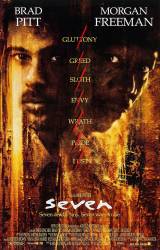
Question: When shaving their chests by the end of the movie, Mills and Somerset are joking and then Mills gets serious, says "You know...?" and then stops. What do you think he was going to say? Maybe he was going to be nice to Somerset, but then refrained himself?
Answer: I've always wondered this question as well. I think he was gonna say something along the line of "you know I haven't talked to my wife all day And that's very weird." Especially since Somerset just said be prepared for anything while transporting Doe. Speculation at best though.
When Mills and Somerset enter the station building just before John Doe gives himself up the female desk sergeant tells Mills his wife had phoned this puts Mills' wife into the mind of the viewer. When Mills says to Somerset during the chest shaving scene 'if I keep coming home late my wifes gonna think something up' is placing Traci again in the mind of the viewer. Then Mills says 'You know?' prompts the question what has happened to Traci.
Answer: Since he stands for wrath in the plot, in the said scene he was probably going to acknowledge his short-tempered nature. He doesn't and therefore he looses a chance of confession. What say?
Could be right. He certainly has explosive episodes of anger throughout the film. He may, just for an instant believe himself to be wrath. I think he ignores the thought because he is always optimistic, caring and believes in good. Therefore, due to these virtues he cannot be wrath. Somerset, the calmer, more laid back character is the pessimist who sees evil everywhere. One would think he would be angry at the world. Maybe he was like Mills when he was younger.
Answer: I've also seen Seven hundreds of times. I've spent hours breaking down each and every scene inside my own head and I still have a hard time fathoming how insanely perfect the relationship Andrew Kevin Walker created between Mills and Somerset. Somerset's ability to pick up on the smallest comments Mills makes helps reinvigorate his passion for being a detective at a point in his career where he has all but given up hope for the world around him. Mills shows moments of vulnerability many times during the film but maybe not more so than the chest shaving scene. Personally I don't think his statement of "you know?" has any literal reference to anything physically happening in the story. I think he's merely gathering the courage to thank Somerset for his help, guidance and mentorship over the course of the past Seven days. I think he stops because he feels simply saying "thank you" will make him appear weak in front of a man he's no yet ready to open up to.
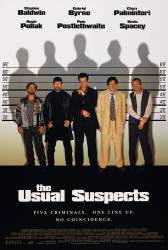
Question: How did Soze end up in the police station after he escaped the boat in the first place? If he had vanished after the bombing, he wouldn't have to make up the stories and he wouldn't have been identified by Kujan.
Answer: Soze ended up back under arrest and for some questioning as 'Verbal Kint'. He never really vanished, he's just playing two parts/people. He really vanishes off the scene by the end of the movie after he tricks Kujan.
With the exception of what's known to have happened on the dock, the entire story is a lie told by Verbal Kint to Agent Kujon. Kujon realises this after Kint leaves the office but not in time to catch up. The entire movie is about a habitual liar making up a story about what happened on the dock. He may be Keyser Soze or an alter-ego variant but even Keysers rep is subject to question as it was told by the same liar. Verbal himself said about Keaton, "He was a grounded guy, a cop. If you think the husband did it then you're right." He was telling on himself as sociopaths will do when they think they're smarter than everyone around them.
Answer: Kint/Soze ended up in the police station because he simply didn't get away in time.
Answer: All he had to do was kill them on the ship, blow it up, and leave. The whole BS story with the cops didn't even have to happen.
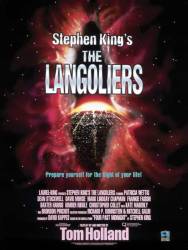
Question: Is there a reason why when they're in the past they can't catch up with the present, but when they land a little into the future, the present can catch up with them? Are they not moving along on their own timeline? And if not, why are they not left in that moment and stand there to see the present come and go without taking them?
Answer: Think of time as a gear with only one tooth, and think of them as a gear with only one notch. In the past, the one tooth has forever passed their notch and they'll never be carried along in the flow of time again. In the future, the tooth comes along, snags their notch, and they're back in the flow of time.
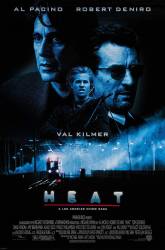
Question: In the scene right before the big bank heist, a detective comes into the situation room informing the team that a CI Hugh Benny had a tip about Neil McCauley looking at Far East National Bank. How the heck did Waingro (working for Benny and VanZandt) even know about this score? McCauley hadn't even discussed it with Kelso when Waingro took down the armored car.
Answer: Waingro helped Van Zandt track down Trejo. Waingro then tortured Trejo and threatened his family if he didn't give up McCauley. With his back to the wall, Trejo gave Waingro and Hugh Benny the details of the bank heist, but Waingro killed Trejo's family anyway and beat Trejo almost to death. Benny then gives the tip to the police on Van Zandt's order.
I wonder how Trejo was tracked, I don't remember his name being revealed during Waingro's time with the crew, or any other information.
Well, we never see the crew prior to their first heist. Trejo could have given Waingro his name during the planning of that heist.
Waingro met this crew only once. How would he know who Trejo is or where he lives? Right before the heist, Trejo is asked to mislead police away from the heist.
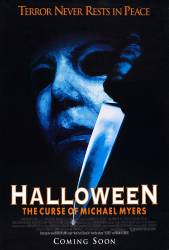
Question: Who is the father of Jamie's baby?
Chosen answer: In the extended version, it is revealed to be Michael Myers.
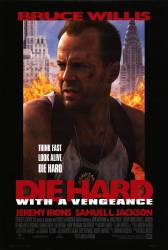
Question: I always wondered about this. As a cop, McClane knew about weapons. While handing over the machine gun to Zeus, he explained how it worked. But he did not tell Zeus to switch the safety catch off. How on earth could McClane forget to tell something crucial like that? Zeus isn't even pissed about it later on, while it could have cost him his life.
Answer: And Zeus mentions about brothers knowing how to shoot guns.
He said it was racist to assume that brothers know how to shoot guns. He admitted he didn't know how to use that model.
Chosen answer: A simple omission, in the heat of the moment he forgot to mention it. He may have thought, since he just took the gun off an enemy, that the safety was already off.
McClane probably did that intentionally as Zeus didn't know much about guns. In fact, you hear McClane say "Don't be a hero, you find him, you come get me."
Of all the possible answers, this is definitely not the one. There's no way he handed him the gun and then purposely did not tell him that the safety was engaged. There would be no point in that.
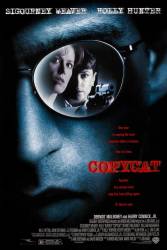
Question: Who is Conrad? Harry Conick, Jr.'s character writes him a letter at the end, and there is a Conrad character listed in the credits, but I haven't been able to find him.
Answer: I thought that it was Peter Kurten (Foley) that broke in and left the book. However if it was Conrad, then he does not appear in the flesh in the film.
You are correct. I just rewatched this tonight on Tubi.
Answer: Conrad is the man that breaks into Helen's flat and leaves the book. Happens just over 1 hour into the film.
Answer: I don't think Conrad appears in the film. Earlier in the movie HC Jr says he has other "disciples"; Conrad seems to be the new recruit to replace the just-killed McNamara character.
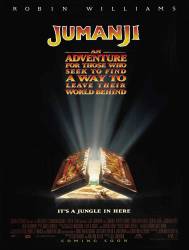
Question: When Alan has reached Jumanji, why were the bullet and rifle pulled into the game? They weren't from the game, but purchased by Van Pelt from a gun store.
Answer: The game is essentially "resetting reality" back to the point Alan was first sucked into the game. So it is undoing everything that has been done - including taking away the gun and bullets Van Pelt had purchased.
Answer: The gun and bullets may have been from the real world but they were Van Pelt's property. He purchased them at the gun store. Apparently the game pulls in Van Pelt and anything of his he was using to hunt Alan. It makes sense that the game would do this because Alan defeats Van Pelt by following the rules of the game. Having Van Pelt be able to simply purchase a gun in the real world and kill a player with it even after they've completed the game would be a huge cheat.
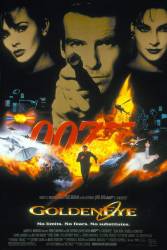
Question: If the opening scene was staged to get 007 to surrender, then it seems it was a terrible plan. Look how many Russians got killed by Bond and 006. It seems very awkward that the whole thing was staged. Why did Bond need to surrender? Why couldn't 006 just shoot him (besides the usual reason that 007 must be executed through an overly involved and escape-riddled plan) What would they do with him once he was captured? Too many questions and a weird scenario.
Answer: The plan was not to capture 007, it was to stage 006's death. Trevelyan's long-term goal was to steal money from the Bank of England and cover it up using the GoldenEye satellite - he presumably did not have time to run the Janus Syndicate and implement this very elaborate plan whilst serving as a full-time MI6 officer. In fact, it was probably the intention that Bond should escape and tell the British government that 006 had died a hero's death.
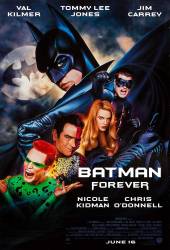
Question: At the beginning, when Batman breaks through the helicopter's window with his head, he tells Two-Face, 'Give it up, Harvey. You need help' or something like that. But this voice is totally not what Val Kilmer sounds like. The best I can come up with is that it's a stunt double or something like that. If anybody out there knows the real reason, I'd be happy to hear it.
Chosen answer: Batman talks like that because if he talks like Bruce Wayne (Val Kilmer's voice) his voice might be recognized, leading to Batman's identity being revealed.
Answer: I have noticed that as well. It doesn't seem like his voice is wrong, it just sounds like he says "give it up" twice at once or something. Maybe an issue in post-production.
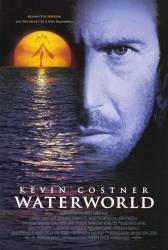
Question: Where did the bad guys get the cigarettes, paper, beer, gasoline, and water. All of the guys said they've never seen land, so how did they get this stuff?
Answer: Sealed stuff floats. They gather stuff just like the mariner.
Answer: Well the Black Death cigarettes and the smeat cans were both sealed items so they theoretically were waterproof. The gasoline was refined from oil which was leftover in the Exxon Valdez and the water was purified from sources? Just like how the mariner purifies his pee. I mean if you can believe he can purify his pee on the trimaran then I'm sure the crew of the Valdez is capable of purification.
Answer: These points have been brought up ever since this movie came out. I guess you have to suspend a lot of disbelief!
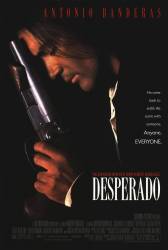
Question: I have two questions: 1) At the beginning of the movie, when Buscemi tells the story about the mariachi in this one bar in Saragossa, Tavo (the one Mexican that is later in the movie killed on the street by the mariachi) says something in Spanish, and all start laughing - does anybody know what he says? 2)When the mariachi prepares to go to the Tarasco-Bar, in his bathroom, what song is played?
Answer: Tito Larriva as Tavo says (in reference to Steve Buscemi) that "This guy smells like shit." The name of the song being played is "Manifold de Amour" by Latin Playboys.
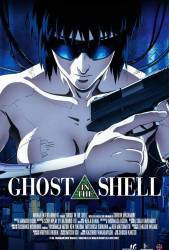
Question: What exactly is a Ghost, and in the last line of the movie, what has occurred? Have the two merged into one and become a new entity?
Chosen answer: The Ghost is your spirit. In the end yes, they both merge,making a new entity, not just a human/cyborg and an AI, but a complete new entity - the whole is more than the sum of the parts.
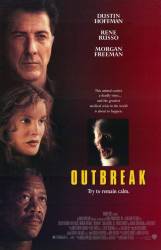
Question: Why did General Donald McClintock want to keep the virus a secret and not let anyone know of its existence?
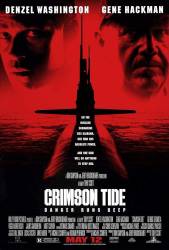
Question: I know that this film was set in the 1990s but even then, was smoking permitted on US submarines? It would seem a bit odd given that the crew are relying on recycled oxygen.
Answer: In the most technical sense ("by the book") it is against policy. But then, the Marines do not allow tattoos and look how well that's enforced. It is up to the ship's Captain to enforce such regulations, and at sea, there's no one to penalize him if he chooses to let the crew smoke at certain times, given certain conditions.
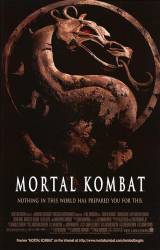
Question: When Lui Kang fights Reptile, what was Johnny Cage doing this entire time? (01:12:15 - 01:15:50)
Answer: Since the entire fight is focused on Liu Kang and Reptile, he could have possibly waited to see what the outcome of the fight was.
Answer: Wouldn't Johnny Cage want to go in to help his "mate", rather than stand their and watch? The question here (because Reptile is a secret character in MK1 and Raiden saying "In Outworld, you will find another guy") is that can Johnny Cage interfere with the fight, or is that against the rules in this tournament?
Not only is it against the rules, but Raiden never said they'd find another guy. What he said was, "You'll find another guide." The guide being Kitana.
That is indeed against the rules.
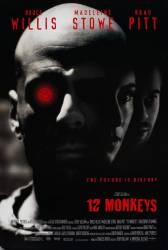
Question: Throughout the movie, Bruce willis has a tattoo visible just above his ear. Was this added for the movie or is it real? if it is real, what does it say?
Answer: The tattoo is for the movie. It is his prisoner identification.
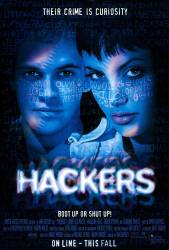
Question: Why is Kate Libby doing administrative work for the school, such as handling transfer forms?
Answer: When I was in Jr. High even (6th-8th grade) they had classes titled "Office Aid" and all you did was literally help out the secretary's when they need it, otherwise you just sit on your ass and talk to people as they come in and out of the office. Or if you had a superior who was awesome, like I did, (the vice principal for my last name was basically on a first name basis with me haha) they would let you pretty much just roam the halls and walk around all you want as long as you don't have any teachers get mad at you for anything. It was definitely a very sought after class when I was in school.
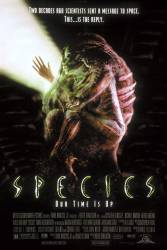
Question: How is it Sil managed to cut off the woman's thumb since garden shears are not strong enough to cut bones?
Answer: You could probably make a compelling argument that, as an alien-hybrid, Sil is stronger than a normal person and thus was just able to forcibly cut through the finger with the pruners by "crushing" it. Also, this is where good old suspension of disbelief comes in. The pruners might realistically have broken at some point, but it's a movie, so we can "forgive" this bit of unrealism because it creates a compelling scene.
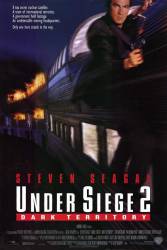
Question: Were Travis Dane and Marcus Penn planning on killing all the mercenaries at the the end as well as the hostages? I kind of got that impression during Dane's speech towards the end.
Answer: I would say yes they where planning on killing some of the mercs. There is one fact that shows that. if they had plan on putting all the mercs into the copter, then the guys in the engine car should have know at x time get out and move back to get into the copter, giving the fact that they are still in the engine car when it hits the other train tells me they didn't know.
Chosen answer: Dane's speech was for the benefit of the hostages, not mercs. (It could be assumed that they knew he was lying.) Near the end of the film, a helicopter appears the train and prompts the mercs to board. The pilot's announcement of the first pickup (who was actually the porter) as well as the pilot's reaction to the fight between the porter and the female merc indicates that he expected to pick all of them up.
Answer: I've seen se7en hundreds of times, and I've always wondered what Mills was trying to say to Somerset, and here's my take. If you've noticed, the recurring theme between the two was their conflicting views on how they see the world around them. Somerset is the grizzled, experienced detective who has been through the ringer, so he's views are more pessimistic in nature. Which I can sympathize with. Mills being the rookie detective that he is, was the optimistic, "I'll be the hero" kind of guy. So much so that Somerset called him out for being too Naive, and that he can't be like that. So getting back to the question at hand. During the chest shaving scene, I believe Mills was about to tell Somerset that his dark pessimistic view of the world around them makes sense. Mills wanted to say that Somerset was right, which he wasn't able to bring himself to do.